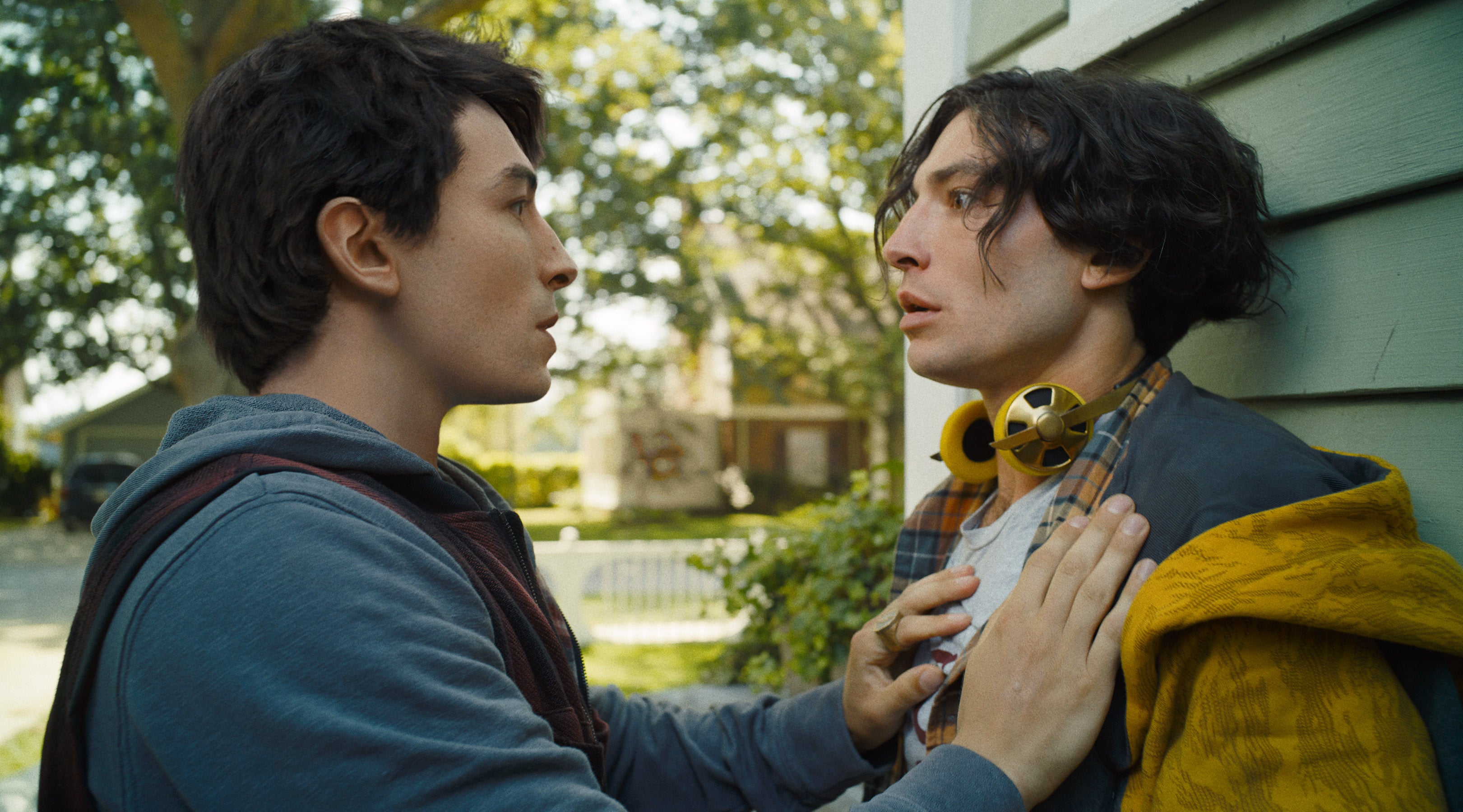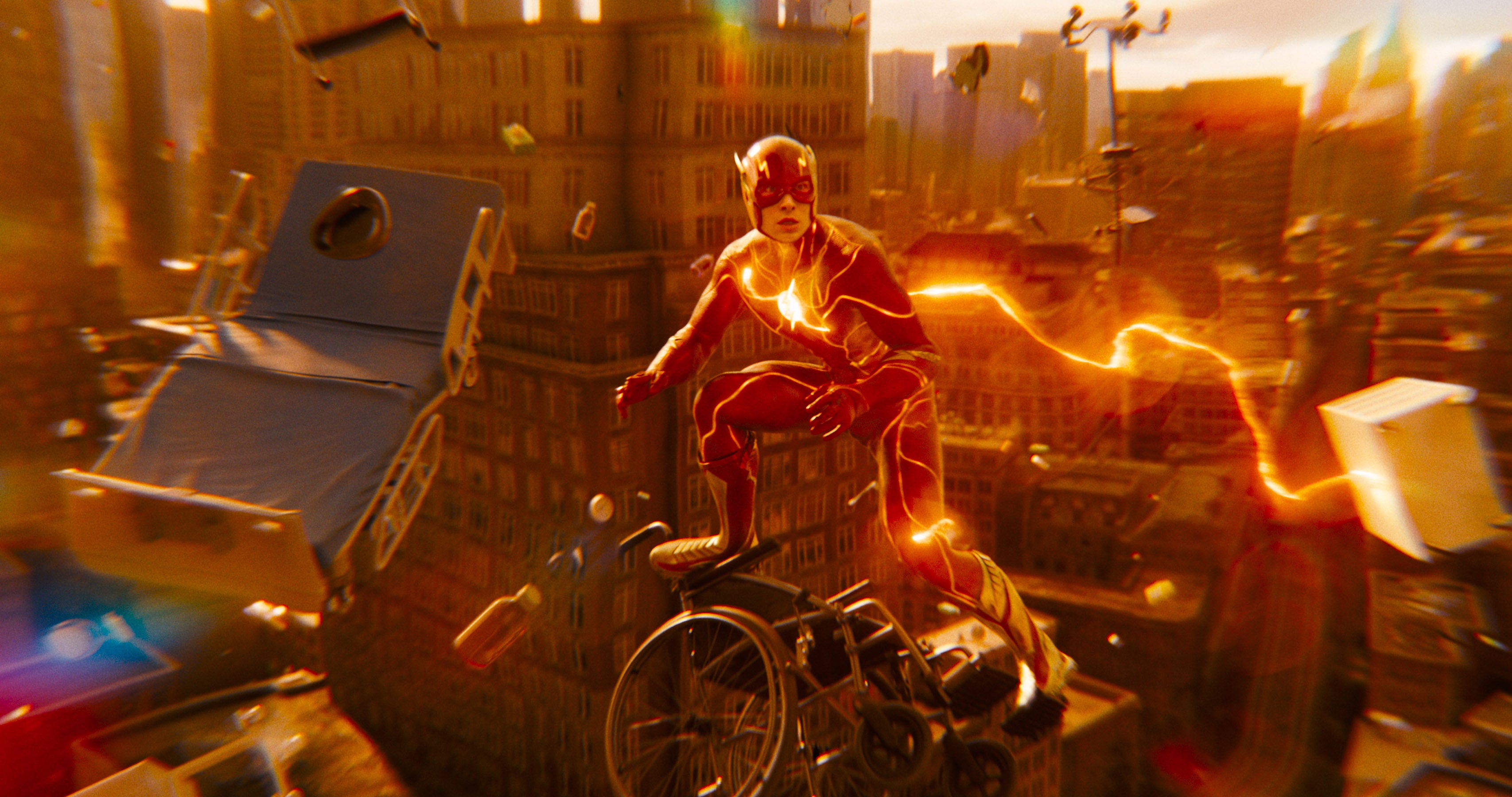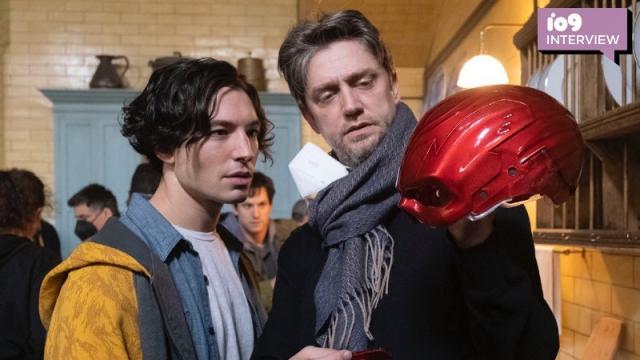Opening weekend for The Flash was certainly not what many people involved expected it to be. The box office was much less than anticipated. Complaints about visual effects and more were rampant. And yet, if you step back and look at The Flash’s Rotten Tomatoes audience score, it’s over 80%, which suggests many fans who saw it did enjoy it.
I personally enjoyed it, as I said in my review, and afterward had a great chat with the film’s director Andy Muschietti and his producing partner and sister Barbara Muschietti about it. Much of that you may have already read, like their thoughts on the film’s controversies, bringing Michael Keaton in, connecting The Flash to Man of Steel, and much more. But below, I’m finally running the questions I asked that were huge spoilers. So, unless you don’t care or haven’t seen the film yet, time to go away.

First up, we asked about the film’s ending. Now, to be clear, when we spoke to the Muschiettis, the ending we had seen did not have George Clooney in it. It ended with Barry, not the audience, seeing Batman and acknowledging it wasn’t who he thought it was. I asked: was the ending in any way influenced by the studio? Especially since, without revealing Clooney, it left the door open for the actor cast in The Brave and the Bold to be there. The answer, in retrospect, seems to acknowledge that I hadn’t seen the full ending yet.
“We basically needed to get to the best movie possible,” Barbara told Gizmodo. “And the end that we have is the best ending possible for this movie. And there was no interference. Let’s put it like that.”

Next up, we asked about the decision to not reveal who killed Barry’s mum. The film obviously is very much about her death but Barry never seems that interested in solving the murder, just exonerating his dad.
“We didn’t want to go deep into that because then it would be a movie about trying to find the murderer,” Andy said. “This is not about that. This is Barry Allen trying to actually reunite with his mum. So, I mean, if we touched that thing in this movie, the movie would have been completely different. I think we just mentioned it back in the day, but we decided to go this way.”
“Barry minimizes this thing and talks about it like a chain of tragic events,” the director continued. “And he speculates about the murder, but you don’t feel a vindictive drive to find the killer or anything. Barry Allen is a guy that, basically one of his strengths is optimism and hope, even though he’s, like, very neurotic and anxious and whatnot. But it was about hope and giving the chance to bring his mum back to life, that was about it.”
“It’s also a big theme in the movie to basically accept what he can’t change and look to the future with what’s coming,” Barbara added. “You know, it’s not a revenge movie.”
“That doesn’t take away the fact that it leaves an open question,” Andy concluded. “Is it Reverse-Flash? Is that someone else? The mythology is pretty clear in most of the cases but potentially that’s part of another movie.”

Near the end of the film, Alternate Barry nearly destroys the multiverse as we see multiple dimensions crashing into each other, ones that contain heroes of DC’s past including Christopher Reeve as Superman, Adam West as Batman, and Nicolas Cage as Superman. Since there are several major, major characters that could have been used but are missing (Lynda Carter as Wonder Woman, Christian Bale as Batman, etc.), we asked if there was anyone who was approached who wouldn’t do it.
“No,” Andy said. “I don’t remember having that problem. Of course, I had a dream list of characters, but for matters of pacing and rhythm, we had to choose only a few and we ended up with my favourites.”
“It was basically a feast,” Barbara added. “And we had to cut it down because of time. And of course, everybody wants to be in the Chrono Bowl if you belong to DC. We were trying to honour the universe.”
If you’re wondering why the effects look like they do or why Grant Gustin isn’t in the film, visit those links. The Flash is now in theatres.
